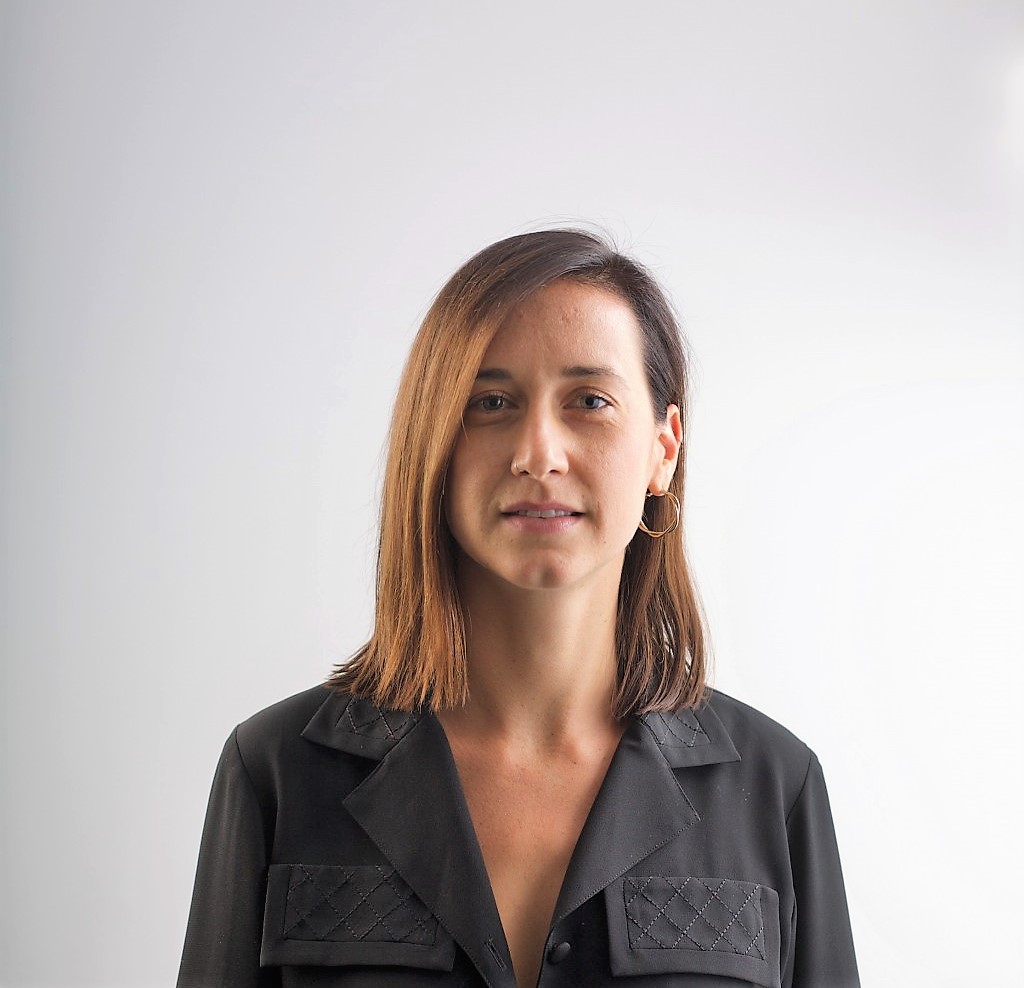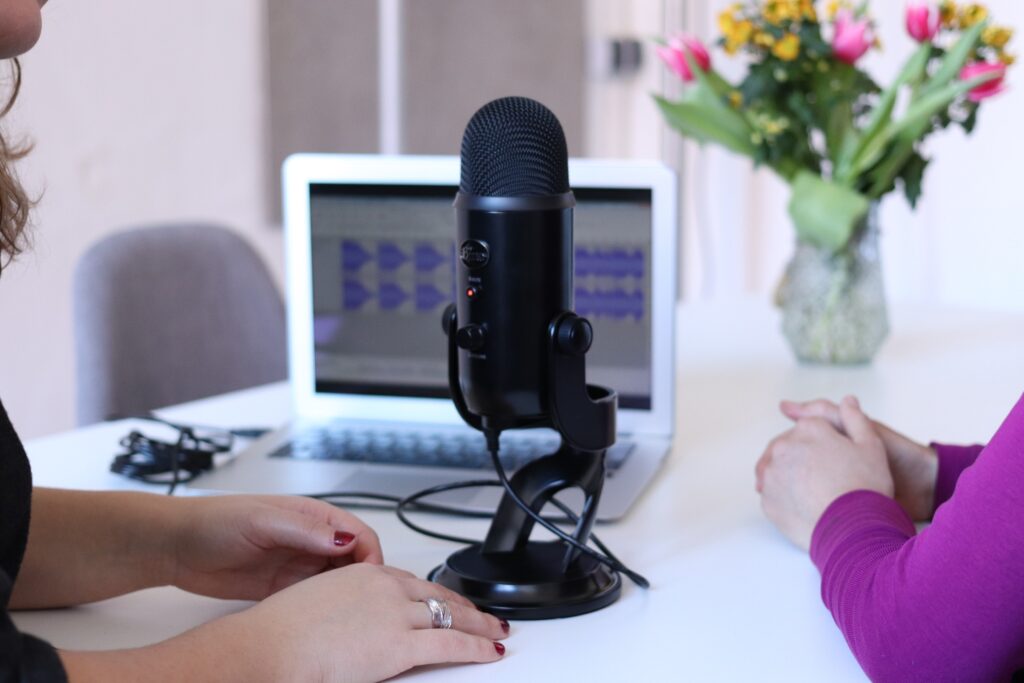Photo by CoWomen on Unsplash
As a qualitative researcher investigating the lived experiences of lesbian, gay, bisexual, and queer (LGBQ) people in leadership, it is vital that I am aware of how my approach to this research impacts the findings of this project. In this blog post, I’ll go through some of my own practices and tips for conducting qualitative, semi-structured interviews and treating participants with care and respect.
To date, I’ve completed 28 interviews with LGBQ individuals in leadership. The majority have been conducted in person, but several have been conducted online due to logistical challenges or participant preference. Over the course of this research, I’ve learned that the attitude and energy you bring to the interview is just as important as your interview technique. When I am about to begin an interview, I aim to feel grounded, curious, and ready to be as present as possible with the person I am about to meet. Here are some of the methods I use to achieve this sense of openness, curiosity, and attention to detail when I conduct qualitative interviews.
Before the interview
I’ve learned that how I spend the hour or so prior to the interview can have a significant impact on my energy when I enter the interview. I try not to take any meetings or do anything that might create stress in the hours prior to the interview. Whether the interview is online or in person, I aim to spend about an hour away from my computer and try to take a walk and get some air so that I am prepared to sit for an extended period of time. I will also glance through the interview guide, and make sure I have all my documents ready (informed consent, participant information sheet, voucher for participation). I check that my recording device has full batteries. I also make sure that I’ve eaten and am well hydrated, as this is important for maintaining focus and energy. Sometimes I feel nervous before I start an interview, so I try to do some deep breathing and stretches to calm the nerves.
During the interview
When I meet the participant, I usually start by asking them about how their day/week has been going and allow a few minutes for casual conversation (if they are interested in this). I find that this usually feels a bit more natural when I meet people in person, but nevertheless I feel that it is important to allow a few minutes to let people settle in. I also ask if they have any questions about the study, how the data will be used, or any other concerns.
It’s important to set expectations around the length of the interview and stick to them. If the conversation is flowing and it looks like you might go over time, check in with the participant and ask if they want to continue or wrap things up if they need to be somewhere.
Know your questions well enough so that it doesn’t feel like you are completely reading off the interview guide. Remember, it’s a guide, not a script. It’s important to ask questions based on their responses, as this is what can make each interview unique. Initially, I felt some anxiety around the need to follow the participant’s narrative while still covering the key topics on my guide, but this felt easier to do the more I conducted interviews. It takes practice, and it’s okay if you don’t cover every topic in depth with each person.
For me, conducting an interview is a chance to practice staying present and active listening. I did find it challenging to stay present when I was also thinking about formulating my next question and what I wanted to ask more about, but again, this was something that improved over time. It’s also okay to have pauses to think about your next question and check your guide to get a sense of what you have covered.
Don’t ask double-barrelled questions or leading questions during an interview. A double-barrelled question is when you ask two questions at once, which can be overwhelming for a participant. An example would be: “How did you manage to achieve your leadership position? Did you always know that you wanted to be a leader?” A leading question is when you phrase a question in a way that you are pre-empting the answer and can seem like you are simply looking for confirmation of an idea that you have. An example would be, “It must have been difficult for you to be an openly gay man working in that industry, right?”. Questions need to be phrased in a way to allow for participants to share their experiences and do not look for yes/no responses. So, a better, more neutral way to phrase this question might be, “Can you tell me about your experience of being an openly gay man in your industry?”
Speaking of neutrality, it’s important that the interviewer does not share their own experiences or opinions. I found that this can be challenging, especially when I felt connected and agreed with something the participant was saying. However, not sharing your own views or experiences doesn’t mean you have to be cold. I found that I could express interest and empathy through phrases like, “Thank you for sharing that”, “I can imagine that must have been difficult”, or “That’s really interesting to hear”.
Approach difficult topics with care, but don’t shy away from delving into challenging experiences if participants are willing to speak about them. When a participant starts to speak about something difficult, ask questions such as “Are you okay sharing more?” or “Would you be able to elaborate on that experience?” It’s important to let people set their own boundaries.
Interviewing LGBQ people in leadership has led me to think about what it means to hold space for people when they share their experiences with you. I find that it’s important to maintain a high quality of attention, a calm presence, and express empathy when someone shares something difficult that has happened in their lives. I’ve thought about what it means to really listen and to show care within the boundaries of the participant/interviewer relationship. I believe everyone will have their own way of doing this, but I believe that reflecting on how to prioritize respect and care in the interaction is of utmost importance.
After the interview
Once the interview is finished, I immediately upload the audio file from my recording device to my online (secure) storage space. I also upload the informed consent and enter the participant demographic information into a spreadsheet. If the interview took place online, I would send a follow up email thanking the participant for their time and in my case, send a voucher (£25 Amazon credit) as thanks for their participation. If the interview took place in person, the voucher would have been given to the participant at the end of the interview.
After each interview I write up about one page (around 600-800 words) describing how I felt during the interview, the interactions with the participant, key themes, and any challenges that came up. If I don’t have time to do this immediately after the interview, I jot down some quick notes so that I remember what I want to write about. These notes are then shared with my supervisors (through a confidential platform) so that we can discuss the interview. In order to share with my supervisors, the notes cannot have any information that would identify the participant. If the notes will not be shared with supervisors, they could also capture details of the interview setting.
Finally, I’ve learned that I need to practice self-care after each interview. Often, the people that I interview discuss homophobia, biphobia, and transphobia, as well as other experiences of discrimination or harassment. Because my interviews are generally a mix of challenging discussions as well as powerful accounts of strength and resiliency, it took me awhile to realize that those challenging discussion did weigh on me, and sometimes caused me to think about my own difficult experiences related to sexual identity. Talking about this with people who care for me, as well as my own therapist, has been very important for making this work sustainable for me. I’ve also been able to discuss some of these challenges with my supervisors, who have offered great support and guidance.
Final thoughts
While I am sharing my own personal practices and approach to qualitative interviewing, this is not meant to be a “How to” guide, or to suggest this is the “right approach”. I believe that each person must work to find their own style of interviewing, which will always be informed by your topics and overall methodology. I wish you luck in this exploration!

Sexual and gender minorities on their pathways to leadership (UK)
